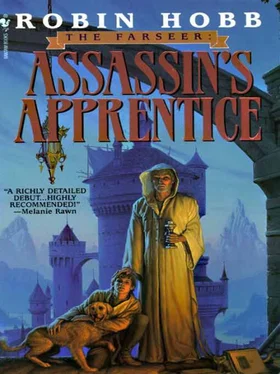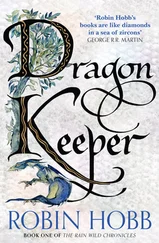But in El’s generosity, he blessed his folk too well. Not enough of them died in the harsh winters, and the storms he sent were too mild to conquer their seamanship. So the folk grew in number. So grew also their herds and flocks. In fat years, weak children did not die, but grew, and stayed at home, and put land to the plow to feed the swollen flocks and herds and other weaklings like themselves. The soil grubbers did not praise El for his strong winds and raiding currents. Instead, they praised and cursed only by Eda, who is the Elder of those who plow and plant and tend the beasts. So Eda blessed her weaklings with the increase of their plants and beasts. This did not please El, but he ignored them, for he still had the hardy folk of the ships and the waves. They blessed by him and they cursed by him, and to encourage their strength he sent them storms and cold winters.
But as time went on those loyal to El dwindled. The soft folk of the soil seduced the sailors and bore them children fit only for tending to the dirt. And the folk left the winter shores and ice-strewn pastures and moved south, to the soft lands of grapes and grain. Fewer and fewer folk came each year to plow the waves and reap the fish that El had decreed to them. Less and less often did El hear his name in a blessing or a curse. Until at last there was a day when there was only one left who only blessed or cursed in El’s name. And he was a skinny old man, too old for the sea, swollen and aching in his joints with few teeth left in his head. His blessings and curses were weak things and insulted more than pleased El, who had little use for rickety old men.
At last there came a storm that should have ended the old man and his small boat. But when the cold waves closed over him, he clung to the wreckage of his craft and dared to cry El for mercy, though all know mercy is not in him. So enraged was El by this blasphemy that he would not receive the old man into his sea, but instead cast him up upon the shore and cursed him that he could never more sail, but neither could he die. And when he crawled from the salt waves, his face and body were pocked as if barnacles had clung to him, and he staggered to his feet and went forth into the soft lands. And everywhere he went, he saw only soft soil grubbers. And he warned them of their folly, and that El would raise up a new and hardier folk and give their heritage to them. But the folk would not listen, so soft and set had they become. Yet everywhere the old man went, disease followed in his wake. And it was all the pox diseases he spread, the ones that care not if a man is strong or weak, hard or soft, but take any and all that they touch. And this was fitting, for all know that the poxes come up from bad dust and are spread by the turning of the soil.
Thus is the tale told. And so the Pocked Man has become the harbinger of death and disease, and a rebuke for those who live soft and easily because their lands bear well.
*
Verity’s return to Buckkeep was gravely marred by the events at Forge. Verity, pragmatic to a fault, had himself left Bayguard as soon as Dukes Kelvar and Shemshy had shown themselves in accord regarding Watch Island. Verity and his picked troops had actually left Bayguard before Chade and I returned to the inn. So the trek back had a hollow feel to it. During the days, and around the fires at night, folk spoke of Forge, and even within our caravan, the stories multiplied and embroidered themselves.
My journey home was spoiled by Chade’s resumption of his noisome charade as the vile old lady. I had to fetch and wait upon her, right up to the time that her Buckkeep servants appeared to escort her back up to her chambers. “She” lived in the women’s wing, and though I devoted myself in the days to come to hear any and all gossip about her, I heard nothing except that she was reclusive and difficult. How Chade had created her and maintained her fictitious existence, I never completely discovered.
Buckkeep, in our absence, seemed to have undergone a tempest of new events, so that I felt as if we had been gone ten years rather than a matter of weeks. Not even Forge could completely eclipse Lady Grace’s performance. The story was told and retold, with minstrels vying to see whose recounting would become the standard. I heard that Duke Kelvar actually went down on one knee and kissed the tips of her fingers after she had spoken, very eloquently, about making the towers the grand jewels of their land. One source even told me that Lord Shemshy had personally thanked the lady and sought to dance often with her that evening, and thus nearly precipitated an entirely different disagreement between the neighboring dukedoms.
I was glad of her success. I even heard it whispered, more than once, that Prince Verity should find himself a lady of like sentiments. As often as he was away, settling internal matters and chasing raiders, the people were beginning to feel the need of a strong ruler at home. The old King, Shrewd, was still nominally our sovereign. But, as Burrich observed, the people tended to look ahead. “And,” he added, “folk like to know the King-in-Waiting has a warm bed to come home to. It gives them something to make their fancies about. Few enough of them can afford any romance in their lives, so they imagine all they can for their King. Or prince.”
But Verity himself, I knew, had no time to think about well-warmed beds, or any sort of bed at all. Forge had been both an example and a threat. Word of others followed, three in swift succession. Croft, up in the Near Islands, had apparently been “Raider-Forged” as it came to be known, some weeks earlier. Word was slow to come from icy shores, but when it came, it was grim. Croft folk, too, had been taken hostage. The council of the town had, like Shrewd, been mystified by the Red-Ships’ ultimatum that they pay tribute or their hostages would be returned. They had not paid. And like Forge, their hostages had been returned, mostly sound of body, but bereft of any of the kinder emotions of humanity. The whispered word was that Croft had been more direct in their solution. The harsh climates of the Near Islands bred a harsh people. Yet even they had deemed it kindness when they took the sword to their now heartless kin.
Two other villages were raided after Forge. At Rockgate the folk had paid the ransom. Parts of bodies had washed up the next day, and the village had gathered to bury them. The news came to Buckkeep with no apologies; only with the unvoiced assumption that had the King been more vigilant, they would have had warning of the raid at least.
Sheepmire met the challenge squarely. They refused to pay the tribute, but with the rumors of Forge running hot through the land, they prepared themselves. They had met their returned hostages with halters and shackles. They took their own folk back, clubbing them senseless in some cases, before tying them and taking them back into their rightful homes. The village was united in attempting to bring them back to their former selves. The tales from Sheepmire were the most told ones; of a mother who snapped at a child brought to her for nursing, declaring as she cursed at it that she had no use for the whimpering, wet creature. Of the little child who cried and screamed at his bonds, only to fly at his own father with a toasting fork as soon as the heartbroken sire released him. Some cursed and fought and spat at their kin. Others settled into a life of bondage and idleness, eating the food and drinking the ale set before them, but offering no words of thanks or affection. Freed of restraints, those ones did not attack their own families, but neither did they work, nor even join with them in their evening pastimes. They stole without remorse, even from their own children, and squandered coin and gobbled food like gluttons. No joy they gave to anyone, not even a kind word. But the word from Sheepmire was that the folk there intended to persevere until the “Red-Ship sickness” passed. That gave the nobles at Buckkeep a bit of hope to cling to. They spoke of the courage of the villagers with admiration and vowed that they, too, would do the same, if kin of theirs were Raider-Forged.
Читать дальше












